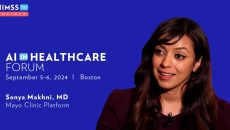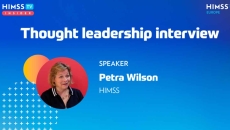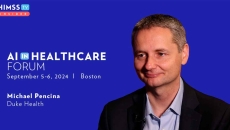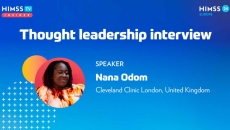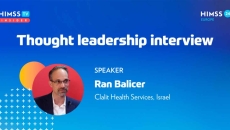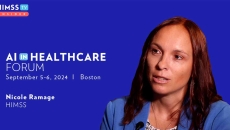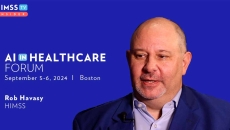HIMSS TV
Dr. Sonya Makhni, medical director of applied informatics at Mayo Clinic Platform, says providers want assurances that artificial intelligence tools are useful, transparent, explainable and secure.
Petra Wilson, HIMSS senior advisor, European health policy and EU affairs, says digital health projects should find synergies with each other and build user trust to ensure sustainability after funding programs end.
Michael Pencina, director of Duke AI Health, sees big potential but also fundamental challenges as providers try to figure out what tools to use, where and when to use them, and for what purposes.
Nana Odom, head of clinical engineering at Cleveland Clinic London, says healthcare organizations should educate all employees to understand and observe cybersecurity best practices.
Kelly Arduino, healthcare practice leader at accounting firm Wipfli, discusses $800 million in cybersecurity resources recently made available by the White House, along with new tools and services from Microsoft, designed for critical access hospitals.
Ran Balicer, CIO of Israel's Clalit Health Services, says leaders feeling pressured to adopt new AI tools should have a specific use case in mind and assess the readiness of their existing IT infrastructure and data.
URAC is an accrediting body that covers virtual care and recognizes excellence in telehealth and health equity. Dr. Shawn Griffin, president and CEO, explains how four honorees successfully make healthcare more equitable using telehealth.
Whether a health system is in the early stage or advanced maturity affects how they view the technology, says HIMSS senior market insights manager Nicole Ramage, who highlights new research.
Dr. Saad Aldousari, hospital director at Kuwait's Sabah Al-Ahmad Urology Center, explains how the Kuwaiti Ministry of Health supports digital maturity and interoperability goals for all its hospitals.
HIMSS senior director of informatics strategy Rob Havasy says that, even as it evolves at a rapid pace, the policies around AI are coming into focus, and providers are getting more comfortable integrating AI into their workflows.

